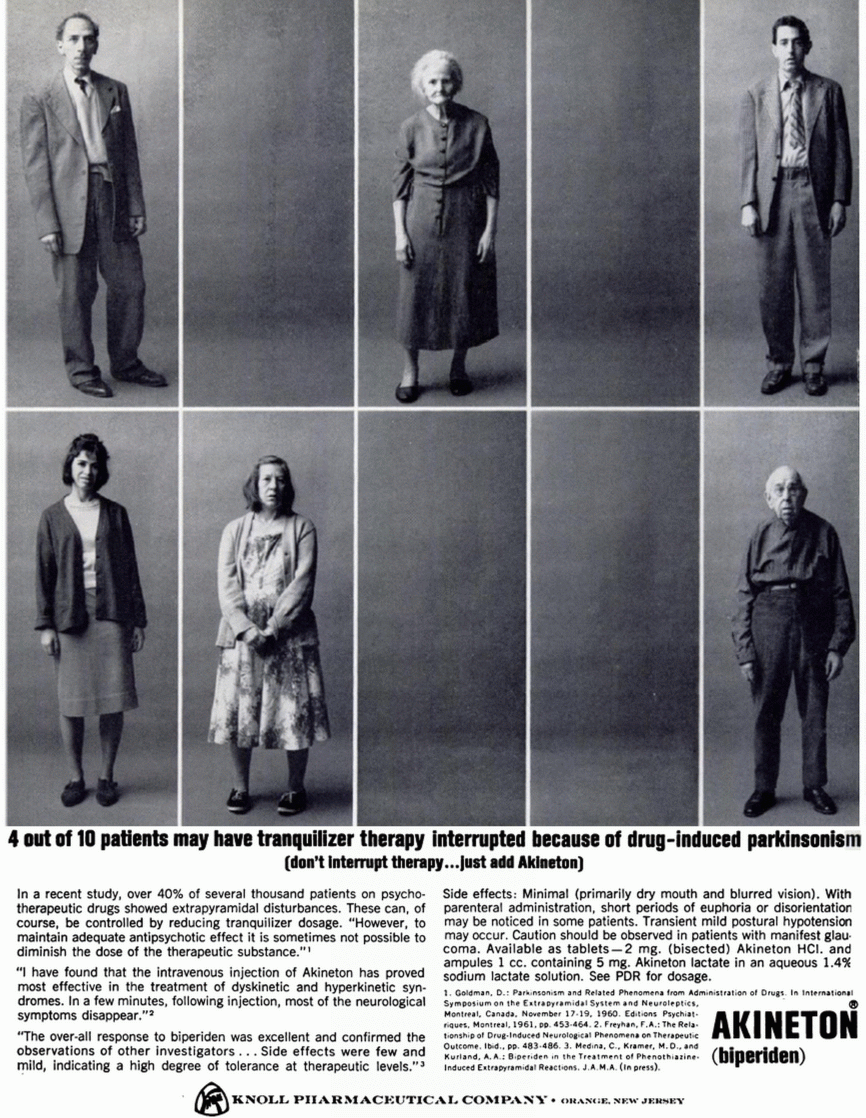

|
|
Akineton advertisement, 1963 Mental Hospitals, Vol. 14, No. 1. 4 out of 10 patients may have tranquilizer therapy interrupted because of drug-induced parkinsonism (don't interrupt therapy... just add Akineton) In a recent study, over 40% of several thousand patients on psychotherapeutic drugs showed extrapyramidal disturbances. These can, of course, be controlled by reducing tranquilizer dosage. "However, to maintain adequate antipsychotic effect it is sometimes not possible to diminsh the dose of the therapeutic substance."(1) "I have found that the intravenouse injection of Akineton has proved most effective in the treatment of dyskinetic and hyperkinetic syndromes. In a few minutes, following injection, most of the neurological symptoms disappear."(2) "The over-all response to biperiden was excellent and confirmed the observations of other investigators... Side effects were few and mild, indicating a high degree of tolerance at therapeutic levels."(3) Side effects. Minimal (primarlily dry mouth and blurred vision). With parenteral administration, short periods of euphoria or disorientation may be noticed insome patients. Transient mild postural hypotension may occur. Caution should be observed in patients with manifest glaucoma. Available as tablets -- 2 mg. (bisected) Akineton HCl. and apules 1 cc. containing 5 mg. Akineton lactate in an aqueous 1.4% sodium lactate solution. See PDR for dosage. 1. Goldman, D.: Parkinsonism and Related Phenomena from Administration of Drugs. In International Symposium on the Extrapyramidal System and Neuroleptics, Montreal, Canada, November 17-19, 1960. Editions Psychiatriques, Montreal, 1961, pp. 453-464. 2. Freyhan, F.A.: The Relationship of Drug-Induced Neurological Phenomena on Therapeutic Outcome, Ibid., pp. 483-486. 3. Medina, C., Kramer, M.D., and Kurland, A.A.: Biperiden in the Treatment of Phenothiazine-Induced Extrapyramidal Reactions, J.A.M.A. (In press). AKINETON® (biperiden) Knoll Pharmaceutical Company ~ Orange, New Jersey |